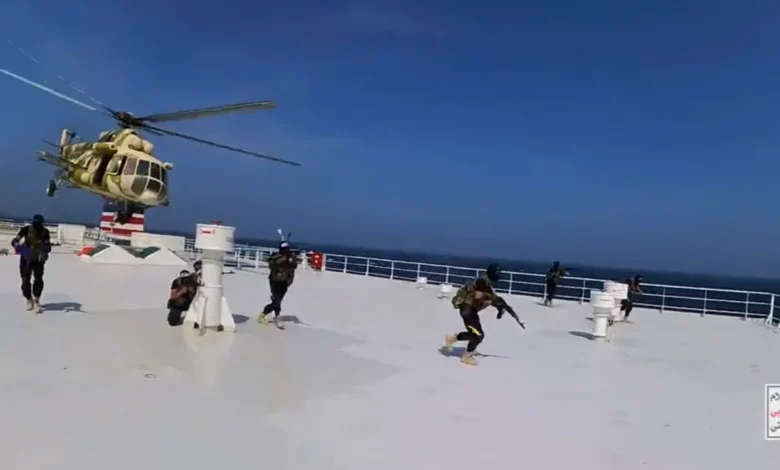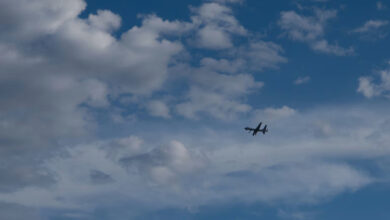
The additional strikes carried out Friday night were much smaller in scope and targeted a radar facility used by the Huthis, the official said.
US Central Command said in a statement late Friday that the USS Carney, a guided-missile destroyer, carried out a strike using Tomahawk land-attack missiles against a Huthi radar site in Yemen. The strike, early Saturday morning local time, was a “follow-on action” to a specific target associated with the previous night’s operations, CENTCOM said.
The Huthis had fired at least one anti-ship ballistic missile toward a commercial vessel earlier Friday, Director of the Joint Staff Lt. Gen. Douglas Sims II said Friday.
On Thursday, the US and UK struck 28 separate Huthi sites in an attempt to disrupt their ability to fire upon international shipping lanes in the Red Sea. The two countries were also backed by Canada, Australia, Bahrain, and the Netherlands.
The latest strike was carried out unilaterally by the United States, the official said.
The US had threatened the possibility of additional military action if the Huthis continued to carry out drone and missile attacks on commercial vessels in the Red Sea.
“We will make sure we respond to the Huthis if they continue this outrageous behavior along with our allies,” President Joe Biden said Friday while in Pennsylvania.
But after the US-led strikes, the Iran-backed rebel group launched another anti-ship ballistic missile toward a commercial vessel in the Gulf of Aden, south of Yemen.
The new strikes come after the White House said it was trying to avoid an escalation.
“Everything we’re doing, everything we’re trying to do is to prevent any further escalation,” John Kirby, strategic communications coordinator for the National Security Council, told CNN Friday.
The set of US-led strikes on Thursday evening targeted radar facilities and command and control nodes, as well as facilities used for the storage and launch of drones, cruise missiles, and ballistic missiles. These are the primary weapons the Huthis have used to target commercial vessels in the Red Sea.
Sims, the Pentagon’s director of Joint Staff, said Friday afternoon that the US had not yet completed a battle damage assessment of the first wave of strikes. But of the initial assessment, he said, “We feel pretty confident we did good work on that.”
Asked if the Huthis could repeat a massive barrage launched earlier in the week, which included 21 missiles and drones, Sims said he did not believe they would be able to execute the same type of attack.
Sims said he expected a further retaliation from the Huthis once they assess the capabilities they can still use to target US assets.
“My guess is that the Huthis are trying to figure things out on the ground and trying to determine what capabilities still exist for them,” he told reporters in a briefing. “Their rhetoric has been pretty strong and pretty high. I would expect that they will attempt some sort of retaliation.”
The Thursday strikes killed five people and wounded six more, according to a spokesman for the Huthi military.
The Huthis had vowed their forces would respond to Thursday’s attack, calling US and UK assets “legitimate targets.”
This story has been updated with additional details.




